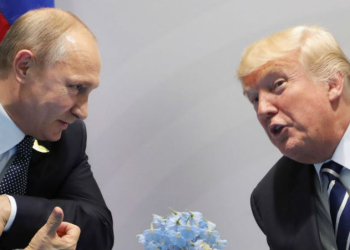The FINANCIAL — Early childhood education (ISCED level 0) is one of the first opportunities children have to develop learning, critical thinking and collaborative skills. Early childhood as well as primary education play a key role in potentially redressing life chances through tackling inequalities and raising proficiency in basic competences.
The term ‘early childhood education’ is used for programmes that meet a certain minimum quality criteria in terms of the intentional educational content. Intentional educational content at this age typically involves creative and play-based activities which are led by pedagogically trained staff and designed to develop children’s cognitive, language, physical and socio-emotional skills.
Today is Universal Children’s Day and to mark the occasion this news item focuses on early childhood education in the EU.
In 34 EU regions, all children participate in early childhood education
In 2018, 96% of children aged between 4 years old and the starting age of compulsory primary education were enrolled in early childhood education in the EU.
Across the EU, 6 out of 10 regions recorded a share above 95%, while in 34 regions – predominantly located in Belgium, Denmark, Ireland and France — all children aged between 4 years and the starting age of compulsory primary education participated in early childhood education.

The FINANCIAL — Early childhood education (ISCED level 0) is one of the first opportunities children have to develop learning, critical thinking and collaborative skills. Early childhood as well as primary education play a key role in potentially redressing life chances through tackling inequalities and raising proficiency in basic competences.
The term ‘early childhood education’ is used for programmes that meet a certain minimum quality criteria in terms of the intentional educational content. Intentional educational content at this age typically involves creative and play-based activities which are led by pedagogically trained staff and designed to develop children’s cognitive, language, physical and socio-emotional skills.
Today is Universal Children’s Day and to mark the occasion this news item focuses on early childhood education in the EU.
In 34 EU regions, all children participate in early childhood education
In 2018, 96% of children aged between 4 years old and the starting age of compulsory primary education were enrolled in early childhood education in the EU.
Across the EU, 6 out of 10 regions recorded a share above 95%, while in 34 regions – predominantly located in Belgium, Denmark, Ireland and France — all children aged between 4 years and the starting age of compulsory primary education participated in early childhood education.






























Discussion about this post